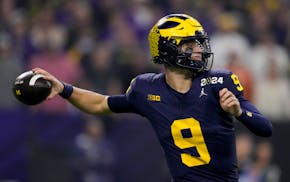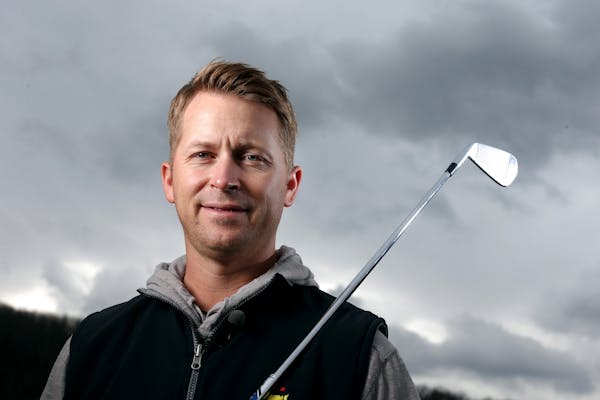Augusta, Ga. – Tiger Woods has been injured for a while and Freddie Couples recently hurt his back, removing two older players from the Masters field who could have leveraged their course knowledge and ball striking into a weekend of contention.
In Woods' increasingly ominous absence, golf has been buoyed by a handful of young stars and a slew of other youngsters who could become stars any day, making the game's popularity less dependent on Woods' dominance. In some ways, it has made the game more likable.
Jason Day, Jordan Spieth and Rory McIlroy are young, phenomenally talented and charismatic. Spieth and McIlroy have won multiple majors at young ages, and Day is ranked No. 1 in the world. Rickie Fowler has shown signs of growing into a major champion but might not get there before a dozen other talented young players who, as Jack Nicklaus said Wednesday, all seem to be 6-4 with long arms, gym memberships and Iron Byron mechanics.
There is one forty-something player in this year's Masters field who might be able to fend off time and youth. Just ask him. Phil Mickelson, 45, is entering his 24th Masters. He won in 2004, 2006 and 2010 and with the gamesmanship of a man who appears to bet on everything, including himself, Mickelson pretended this week that his age is his 15th club, not a set of cement golf spikes.
"I don't feel old at all," he said. "I feel great."
But Mickelson can't just feel great. What would be the point of just feeling great? He has to turn feeling great into a competitive advantage.
"I feel like I'm in some of the best shape I've been in," he said. "I feel like I'm driving the ball better than I have in well over a decade. I'm so excited to play golf.
"So I also have a message, like an internal message that I want to ultimately get out, and that is: You can play golf for a lifetime and be injury-free if you swing the club like Bobby Jones did, like Ernest Jones used to teach, where it's a swinging motion rather than a violent movement.
"A lot of the young guys continue to get hurt as they create this violent, connected movement, and I don't believe that's the proper way to swing the golf club."
With Mickelson, every sentence expresses a smorgasbord of intentions. He's probably offering sound advice to young golfers out of the goodness of his heart. He's probably also offering the news-conference version of the old on-course hex, when evil Golfer A asks vulnerable Golfer B whether he breathes during his backswing, causing Golfer B to think about his breathing and shoot 145 and throw his clubs and perhaps Golfer A into the nearest lake.
Mickelson loves to hear himself talk almost as much as he loves to have others hear him talk, which is why he's so interesting. He speaks with intent.
He admitted it. Asked for his best stories about owning multiple green jackets, he said: "It's just a great way to give the other guys grief, kind of like give them a little jab here or there. I always like to rough up Dustin [Johnson]. He's just a great target, I think."
Tuesday, Mickelson played a practice round with Johnson. Tuesday night, Mickelson was scheduled to go to the Masters champions dinner.
"We were walking down No. 1 and I just said, 'So, what are your plans tonight?' " Mickelson said with his bet-winning grin. "Might have been a little too subtle, OK?"
That last sentence was a shot at Johnson's well-known reputation as a less-than-bookish individual.
Mickelson is known on tour as a gambler, a great family man, a trash-talker, a phony, a generous friend, an egomaniac and a philanthropist. And those descriptions might all be right.
What other golfers should view him as this week is as a threat. Mickelson knows how to play Augusta National, he's hitting it long and straight, and he just might ask you whether you breathe during your backswing.
Jim Souhan's podcast can be heard at MalePatternPodcasts.com. On Twitter: @SouhanStrib. jsouhan@startribune.com

Souhan: Wolves fans made Game 1 special. Now bring on Game 2.

Souhan: Should Vikings even consider McCarthy in NFL draft?

Souhan: NAW erases Suns' lead, Game 1 advantage with big performance

Souhan: This is KAT's chance to prove Flip Saunders was right


